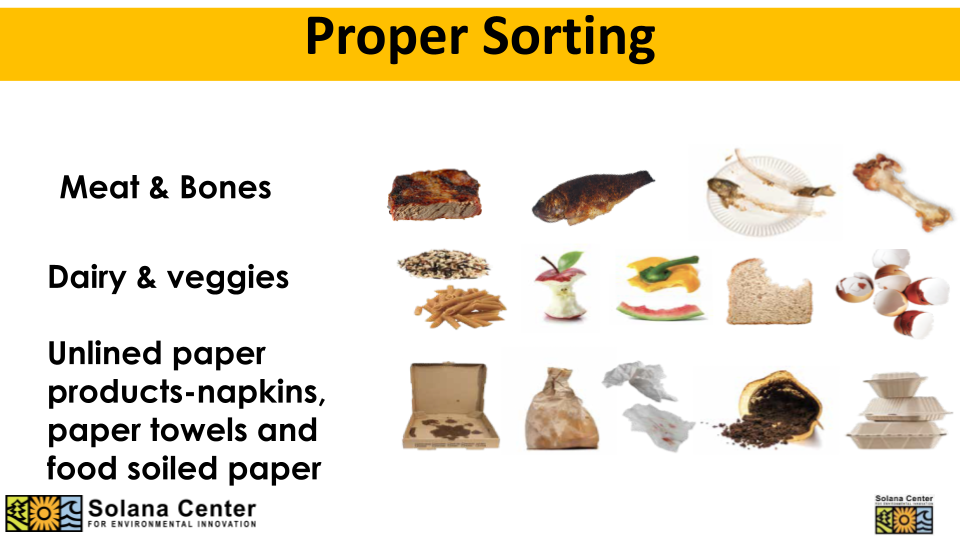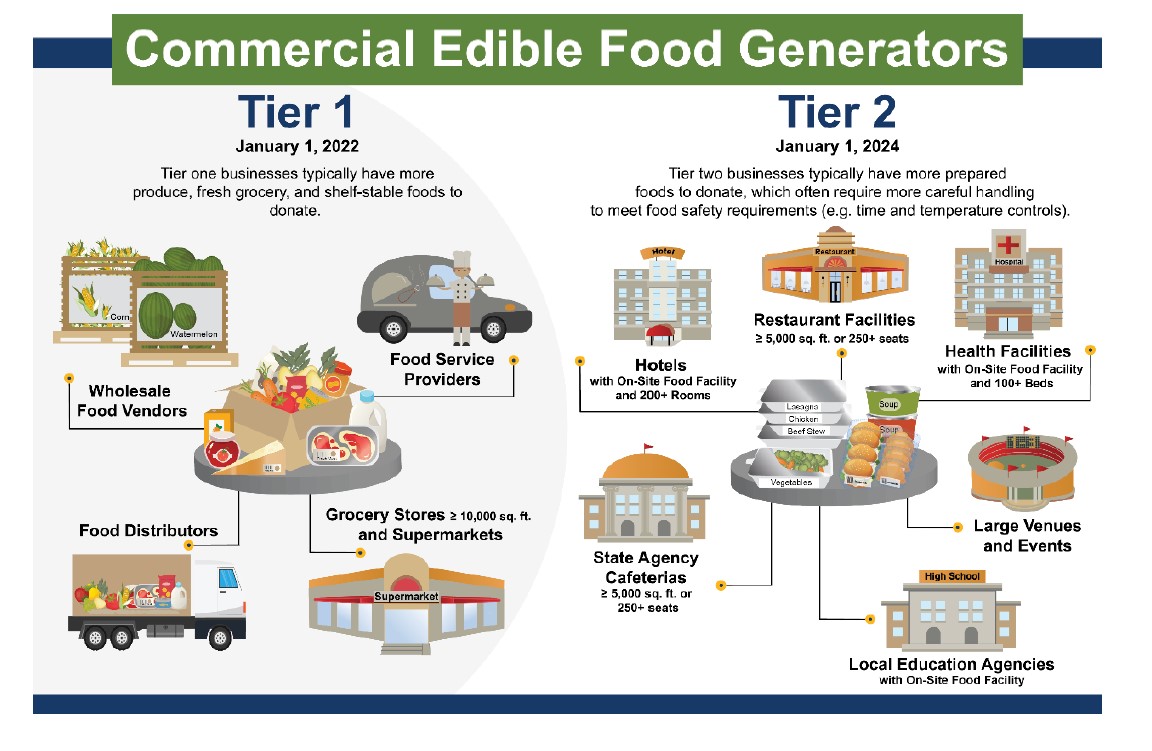SB1383 Overview
CA Senate Bill 1383 (SB 1383) aims to reduce the amount of organic matter in landfills to reduce the amount of methane emissions generated and recover excess edible food to feed people in need. The following statewide targets need to be met:
- Reduce organic waste disposal 75% by 2025.
- Rescue for people to eat at least 20% of currently disposed surplus food by 2025.
Californians send 11.2 billion pounds of food to landfills each year, and a lot of that food is edible for human consumption. In San Diego County, 1 in 4 residents are nutrition insecure and do not know when and where their next meal is coming from. To reduce the amount of food waste and feed more Californians, SB 1383 requires certain food-generating businesses to donate surplus edible food to food recovery organizations. Edible food recovery and food waste reduction programs help save businesses money while also having positive environmental and societal impacts.
What Goes In the Green Bin?

SB1383 Food Recovery Requirements
SB 1383 requires certain food-generating businesses to donate their surplus edible food to people in need. Feeding hungry people through food recovery is the best use of surplus food and a vital way for California to conserve resources and reduce waste thrown in landfills.
Businesses (Food Generators)
 Businesses that are required to donate surplus edible food are categorized as Tier 1 and Tier 2 Businesses based on the following thresholds.
Businesses that are required to donate surplus edible food are categorized as Tier 1 and Tier 2 Businesses based on the following thresholds.
TIER 1 DONORS
Required to Send Surplus Food to Food Organizations Starting January 1, 2022
- Supermarkets with revenue ≥ $2 million.
- Grocery Stores with Facilities ≥ 10,000 sq. ft.
- Food Service Providers
- Food Distributors
- Wholesale Food Vendors
TIER 2 DONORS
Required to Send Surplus Food to Food Organizations Starting January 1, 2024
- Restaurants with Facilities ≥ 5,000 sq. ft. or 250+ seats
- Hotels with an On-Site Food Facility and 200+ Rooms
- Health Facilities with an On-Site Food Facility and 100+ Beds
- Large Venues and Events
- State Agency Cafeterias with Facilities ≥ 5,000 sq. ft. or 250+ seats
- Local Education Agency with an On Site Food Facility
- Non-Local Entities
